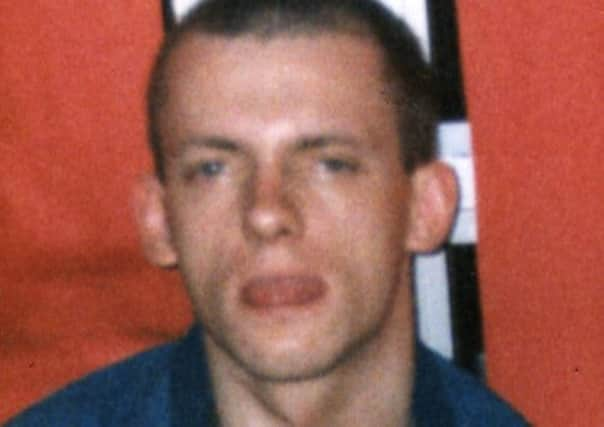‘Shocking evidence’ but CPS rules out charges


It is not known if the CPS considered the specific criminal offence of misconduct in public office when deciding none of 18 officers investigated over the drink, drugs and sex scandal surrounding supergrass Karl Chapman should be charged with any offence.
A CPS spokeswoman said the use of the phrase “self-evident” in a letter detailing why there would be no reconsideration of the original decisions made in 2005 and 2006 did not mean there was sufficient evidence to prove guilt.
Advertisement
Hide AdAdvertisement
Hide AdBut the CPS decision-making process is now set to come under close scrutiny in the High Court with significant questions remaining as to why not a single officer was prosecuted despite Chapman being treated to alcohol, heroin, a trip to a brothel and a relationship with a female officer while he was in police custody.
Supreme Court judges have previously expressed shock at both the scale of wrongdoing, which led to two murder convictions being overturned in 2009, and that no officers had been prosecuted. The improper rewards given to Chapman were concealed from the trial and the initial appeal against conviction by Daniel Mansell and Paul Maxwell who were convicted of murdering Wakefield pensioner Joe Smales in 1998.
Maxwell subsequently pleaded guilty at a re-trial but Mr Mansell has launched a legal challenge against the CPS decision not to prosecute any of the officers involved.
Mr Mansell’s lawyer, Matthew Gold, is preparing a judicial review in the High Court after an inital refusal by the CPS to reconsider which was detailed in a letter from Malcolm McHaffie, Deputy Head of Special Crime and Counter Terrorism Division.
Advertisement
Hide AdAdvertisement
Hide AdMr McHaffie contended Supreme Court judges had not considered the evidence contained in a Criminal Cases Review Commission (CCRC) report, which drew on the findings of a six-year investigation by North Yorkshire Police. The CCRC report findings were accepted unchallenged by the CPS when the convictions were overturned.
His letter to Mr Gold said: “It seems clear that neither the Court of Appeal nor the Supreme Court asked for reasons to be given as to why no officers were prosecuted. In addition neither Court made any demands or requests for the cases against the officers to be reconsidered. The appellate litigation was conducted on the basis of the CCRC report. The evidence was not considered by the Court of Appeal or the Supreme Court.”
He added that as the Maxwell case was going to set a precedent on the question of retrials after prosecutorial miscconduct, “the Supreme Court was at pains to emphasise that misconduct in the case was very serious; perhaps as that would underline the principle they were creating...”
Mr McHaffie then pointed to the comments of one of the five Supreme Court judges in the Maxwell case, Lord Rodger, who said “there could quite properly have been no prosecutions”.
Advertisement
Hide AdAdvertisement
Hide AdHis letter had also earlier referred to comments from Lord Dyson, who gave the leading judgment, who said: “On the face of it there is a strong case of conspiracy to pervert the course of justice and forgery. No explanation has been provided to the court as to why there have been no such disciplinary or criminal proceedings.”
And those of Lord Brown who described the CCRC report findings as “astonishing” and said it was “remarkable and deplorable” that “not a single one of the many police officers involved has since been disciplined or prosecuted for what he did”.
But Mr McHaffie concluded: “It is self-evident that the misconduct was shocking but there is a distinction between that and the proposition that there is sufficient evidence to prosecute individual officers. I accept that if any officer could lawfully have been prosecuted they should have been.
“Careful review work by an experience prosecutor and counsel found that the evidence meant that this was not possible.
Advertisement
Hide AdAdvertisement
Hide Ad“The convictions were in February 1998 and the misconduct was six to seven years prior to the reviews in 2005-6. The reviews were thorough and based on the evidence. The misconduct is now least 14 years ago. There is no new information or evidence. In the light of what I have set out above I can see no reason to seek to reconsider the cases against officers.”